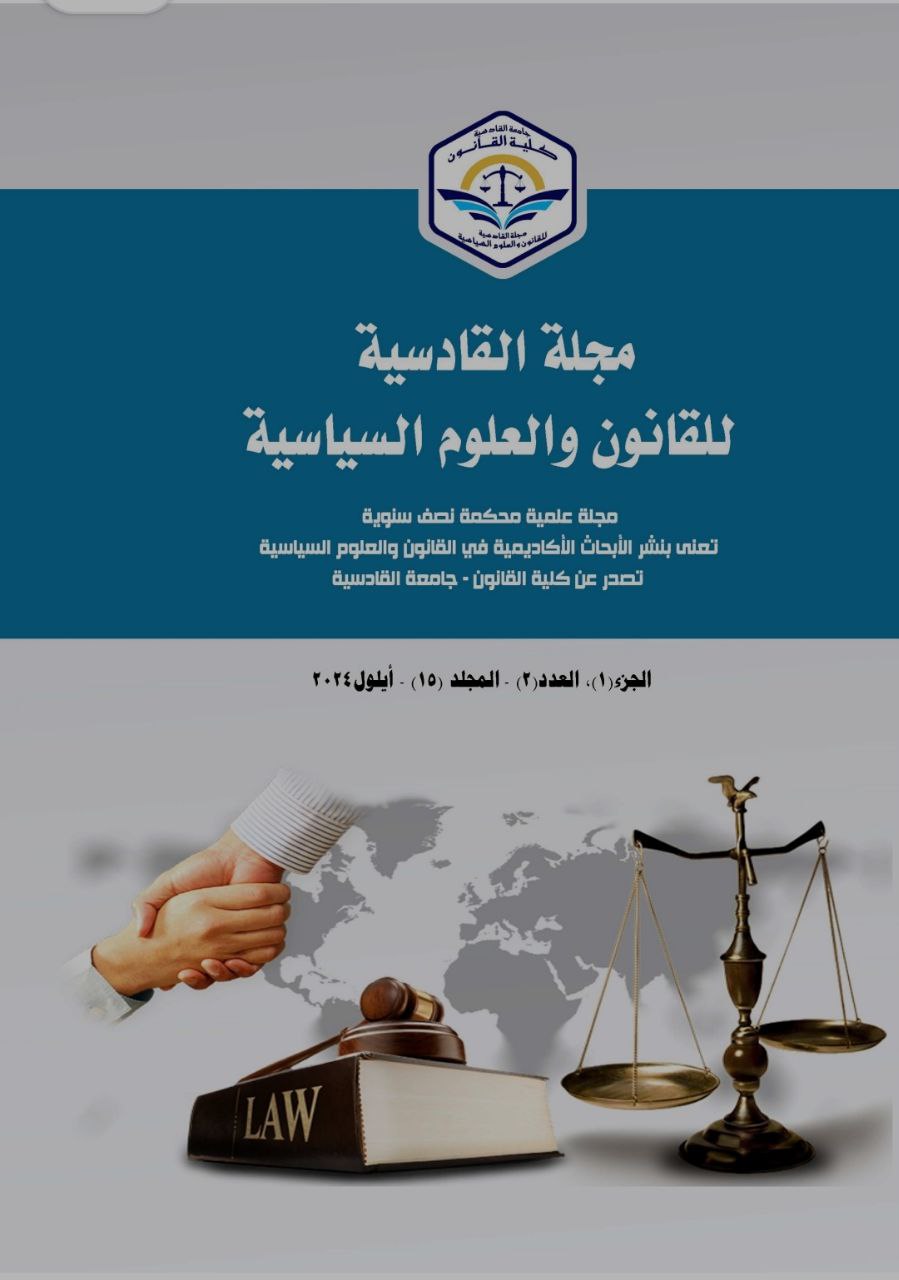Abstract
In recent years, we have witnessed a noticeable increase in the adoption of advanced technologies, which has created a pressing need to effectively regulate and guide the use of artificial intelligence in the development of smart urban environments. Despite the significant potential benefits of artificial intelligence in improving lives and advancing cities, this deployment faces multiple legal and ethical challenges. These challenges include safeguarding individual privacy, determining liability in case of errors or misuse of these technologies, and ensuring accountability and transparency in decision-making processes relying on artificial intelligence.
To ensure responsible and ethical use of artificial intelligence in smart urban environments, legal frameworks must be established to regulate this deployment and protect individual rights. These frameworks should focus on fairness and transparency, provide mechanisms for accountability and oversight, while preserving the rights and privacy of individuals.
By harnessing artificial intelligence in a manner consistent with these frameworks, the desired benefits of technological advancement in smart urban environments can be achieved without compromising ethical, legal, and individual rights.
To ensure responsible and ethical use of artificial intelligence in smart urban environments, legal frameworks must be established to regulate this deployment and protect individual rights. These frameworks should focus on fairness and transparency, provide mechanisms for accountability and oversight, while preserving the rights and privacy of individuals.
By harnessing artificial intelligence in a manner consistent with these frameworks, the desired benefits of technological advancement in smart urban environments can be achieved without compromising ethical, legal, and individual rights.
Abstract
في السنوات الأخيرة، شهد العالم زيادة ملحوظة في توظيف التقنيات المتقدمة، ومنها تقنيات الذكاء الاصطناعي، هذا الاتجاه أثار حاجة ماسة لتنظيم وتوجيه استخدام الذكاء الاصطناعي بفعالية في تطوير البيئة الحضرية الذكية. فعلى الرغم من الفوائد الكبيرة المحتملة لتقنيا الذكاء الاصطناعي في تحسين الحياة وتطوير المجتمعات الحضرية، إلا أن التوجه يواجه تحديات قانونية وأخلاقية متعددة. تتعلق بحماية الخصوصية، وتحديد المسؤولية في حالة حدوث أخطاء أو سوء استخدام لتلك التقنيات، وتنظيم المساءلة والشفافية في عمليات اتخاذ القرارات التي تعتمد على الذكاء الاصطناعي.
ولضمان الاستخدام القانوني للذكاء الاصطناعي في البيئة الحضرية الذكية، يجب وضع أطر قانونية تنظم هذا النشر وتحمي حقوق الأفراد، وينبغي التركيز في هذه الأطر على النزاهة والشفافية، وتوفير آليات للمساءلة والرقابة، مع الحفاظ على حقوق الأفراد وخصوصيتهم.
من خلال الاستفادة من الذكاء الاصطناعي بطريقة متناسقة مع هذه الإطارات، يمكن تحقيق الفوائد المنشودة من التطور التقني في البيئة الحضرية الذكية، دون المساس بالقيم الأخلاقية والقانونية وحقوق الأفراد.
ولضمان الاستخدام القانوني للذكاء الاصطناعي في البيئة الحضرية الذكية، يجب وضع أطر قانونية تنظم هذا النشر وتحمي حقوق الأفراد، وينبغي التركيز في هذه الأطر على النزاهة والشفافية، وتوفير آليات للمساءلة والرقابة، مع الحفاظ على حقوق الأفراد وخصوصيتهم.
من خلال الاستفادة من الذكاء الاصطناعي بطريقة متناسقة مع هذه الإطارات، يمكن تحقيق الفوائد المنشودة من التطور التقني في البيئة الحضرية الذكية، دون المساس بالقيم الأخلاقية والقانونية وحقوق الأفراد.
